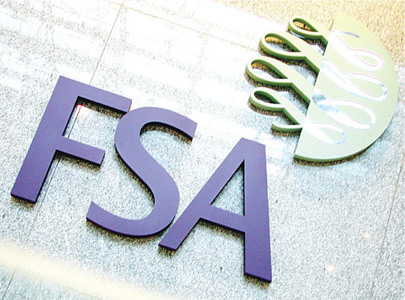Are the FSA Doing Their Job?
1 in 14 people think that the Financial Services Authority (FSA) is doing a good…
1 in 14 people think that the Financial Services Authority (FSA) is doing a good job according to an article The Telegraph released back in September.
The History of the FSA
So what exactly is the FSA? Well the FSA was created in its current form in 1998 by Gordon Brown, and was given the first of many things to govern in the same year when responsibility for banking supervision was transferred from the Bank of England. Next in 2000 the FSA was given the role of UK Listing Authority before in 2001 taking over the following:
• Building Societies Commission
• Friendly Societies Commission
• Investment Management Regulatory Organisation
• Personal Investment Authority
• Register of Friendly Societies
• Securities and Futures Authority
Moving forward into 2004 they took over mortgage regulation and finally in 2005 they took responsibility for general insurance business.

What is the Point of the FSA?
Holding the bag on all these aspects of the UK market was always going to be a tremendous amount of work. So what were there main objectives?
The Financial Services and Markets Act 2000 imposed four statutory objectives upon the FSA:
• Market Confidence: Maintaining confidence in the financial system.
• Financial Stability: Contributing to the protection and enhancement of stability of the UK financial system.
• Consumer Protection: Securing the appropriate degree of protection for consumers.
• Reduction of Financial Crime: reducing the extent to which it is possible for a business carried on by a regulated person to be used for a purpose connected with financial crime.
Between 2000 and 2007 I am sure you can gather what took most of their time. Market Confidence was certainly not lacking during these “boom” years. This over confidence in the market eventually led to the collapse of banks and finance providers in the UK beginning late 2007.
Now don’t get me wrong, market confidence is a very important economic objective, however without financial stability and consumer protection to back it up it is all but meaningless. In many ways pure market confidence represents a ticking time bomb waiting to explode.
With businesses lending and people spending two other main objectives, Financial Stability and Consumer Protection, become ever more important. To implement these two objectives, strict regulation needs to be in place, making sure large corporations are kept in line and are carrying out responsible activities. Unfortunately the FSA, in many ways, left the big banks alone; after all they are realistically paying for the FSAs existence.
In the FSA’s own words “We are operationally independent of the government and are funded entirely by the firms we regulate”, seems legit. This is without mentioning the majority of board members were plucked directly out of large companies within the financial market, and I imagine one day wish to return to them.
Taking a less than adequate supervisory approach and only getting involved when things went wrong was a massive failure of the Financial Services Authority and made it all but impossible to carry out all of its main objectives. Hindsight is a fine thing, but only a naïve organisation would not adequately supervise massive banking monsters such as RBS.
The FSA prefers to highly regulate the little things, hoping that by building a solid base to the pyramid the top will be stable, unfortunately in banking, this pyramid is turn on its head. Even a fully secure base will eventually lose balance if the majority of the weight is at the top.
When looking at consumer protection it would be silly not to mention PPI, Personal Protection Insurance which was almost universally miss-sold by everyone who offered it. This was an obvious money spinner for everyone involved so why were the FSA not aware?
It is a well-known fact that if you offer smooth talking call centre staff good rates of commission on a good sounding product in a badly regulated industry, the proverbial lump of brown is going to hit the fan. Of course Captain Hindsight eventually reared his head again, as he did with Endowment Mortgages and Pension Transfers. Shouldn’t it be possible to stop these things before they become problems?
While I could go on and on I think you get the point. In general the FSA seem to be constantly behind the curve, bullying the little guys while letting the big players take care of themselves. This has not worked in the past and will not work in the future, although maybe if market confidence wasn’t so high the amount of damage caused would have been reduced.
After 12 years in its current state, the Chancellor announced in 2010 that the FSA was to be replaced by 2 alternative bodies, along with a restructure of the UKs financial regulatory framework. Let’s hope this time round it works, banks need to start lending again.





